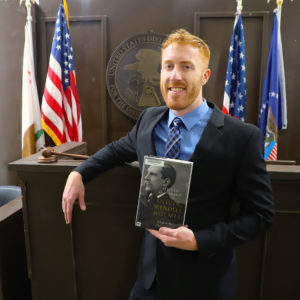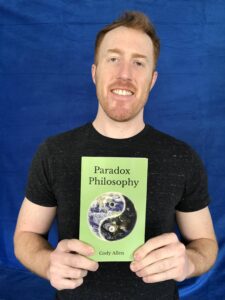 Oliver Wendell Holmes Jr.’s life can be divided into three clean-cut chapters: he fought in the civil war (wounded three times), he sat on the Massachusetts Supreme Judicial Court for twenty years (1882-1902), and then he sat on the United States Supreme Court for thirty years (1902-1932).
Oliver Wendell Holmes Jr.’s life can be divided into three clean-cut chapters: he fought in the civil war (wounded three times), he sat on the Massachusetts Supreme Judicial Court for twenty years (1882-1902), and then he sat on the United States Supreme Court for thirty years (1902-1932).
My biggest take away from this book was the idea that the Constitution is a living and breathing document that should evolve and adapt in step with society. I had heard the phrase ‘living document’ before, but as someone with no formal education in the law, I had never really considered what it actually meant. “The provisions of the Constitution are not mathematical formulas having their essence in their form; they are organic, living institutions” Holmes wrote in one of his Supreme Court case opinions, “it is to be gathered not simply by taking the words and a dictionary, but by considering their origin and the line of their growth.” Holmes was a firm believer that judges had a responsibility to examine how laws operated in real world contexts, and not how they appeared on paper. This same approach would be adopted by numerous court judges who followed in his footsteps, most notably Thurgood Marshall—the first black justice to sit on the United States Supreme Court—who once gave a speech titled: The Constitution: A Living Document.
Holmes is one of the most famous Supreme Court justices in United States history because of his record of dissents. His dissents “not only feature prominently among the classic opinions in the annals of the United States Supreme Court,” but “time and again, became the majority view a decade or more later.” His first major dissent on the Supreme Court came in the 1905 case Lochner v. New York. In it, a New York law limited bakery employees to working only 10 hours a day and 60 hours a week. Joseph Lochner, a prominent baker from upstate, believed the law to be unconstitutional. The case eventually was brought to the Supreme Court in which a five-judge majority decided that the law violated the fourteenth amendment, citing that it breached “the right and liberty of the individual to contract.” Holmes disagreed, writing that the “word liberty in the Fourteenth Amendment is perverted when it is held to prevent the natural outcome of a dominant opinion.” He believed that the Fourteenth Amendment did not embrace laissez-faire economics (defined as minimal governmental involvement) and that if New York’s legislators passed this law on behalf of the betterment of its citizenry, it was shameful for the Supreme Court to overturn it. In his book The Common Law, he wrote that “The law should be based on external standards of conduct rather than subjective moral judgments.” In 1955, precisely fifty years later, in a case involving state licensure of optometrists in Oklahoma, the court ruled in favor of the state with the majority opinion noting that “the day is gone when this court uses the Due Process Clause of the Fourteenth Amendment to strike down state laws.” While Lochner was Holmes’ first major dissent that would prove prophetic, it would not be his last.
Another of his famous dissents came in the 1919 case Abrams v. United States. In this case, a number of Russian Jews (all living in America) had been arrested and sentenced to prison for distributing pamphlets denouncing the United States for aiding the revolutionary Bolshevist movement in Russia. The court ruled 7-2 in favor of the sentencing, the majority opinion being that the offenders had incited revolutionary thoughts against the US government and had undermined the national war effort to detrimental effect. While his fellow justices encouraged him not to dissent, Holmes wrote a blistering one. In it, he advocated for the free speech of individuals under the First Amendment in addition to “introducing the notion of the free trade of ideas.” (He also believed the defendants had been unfairly prosecuted due to their Judaism.) The reason this case was a landmark one was because it came about during a time of intense social anxiety—it was directly a result of the United States’ involvement in the First World War and subsequently the Bolshevik campaign in Russia. It seems to me to be no coincidence that it happened at a time of national (and global) turmoil, when people were living through a heightened state of fear and instability. The coronavirus pandemic of our own time is our equivalent and the same national conversations about speech are being had today. What constitutes ‘clear and present danger’ when it comes to the spoken word? Where do we draw the line between censoring truly harmful speech and not trampling on people’s first amendment right to express their opinions? One hundred years ago Oliver Wendell Holmes drew his line and it is now up to us to draw our own.
Throughout his career on the bench, Holmes argued for “upholding legislation regulating workers’ wages and hours, banning child labor, restricting labor injunctions and yellow-dog contracts, and protecting consumers.” While his decisions were not always embraced by the majority of justices at the time, they were often adopted in later years as membership on the court (and society as a whole) became more progressive. Holmes reached his conclusions not “from a political concern with the outcome, but from his deep study of the law and its purpose in society.” He had a remarkable knack to see where society was heading and always did his best to steer his judicial opinions in that direction. We are undeniably a better society because of him and his exceptional contributions to our understanding and practice of the law.


